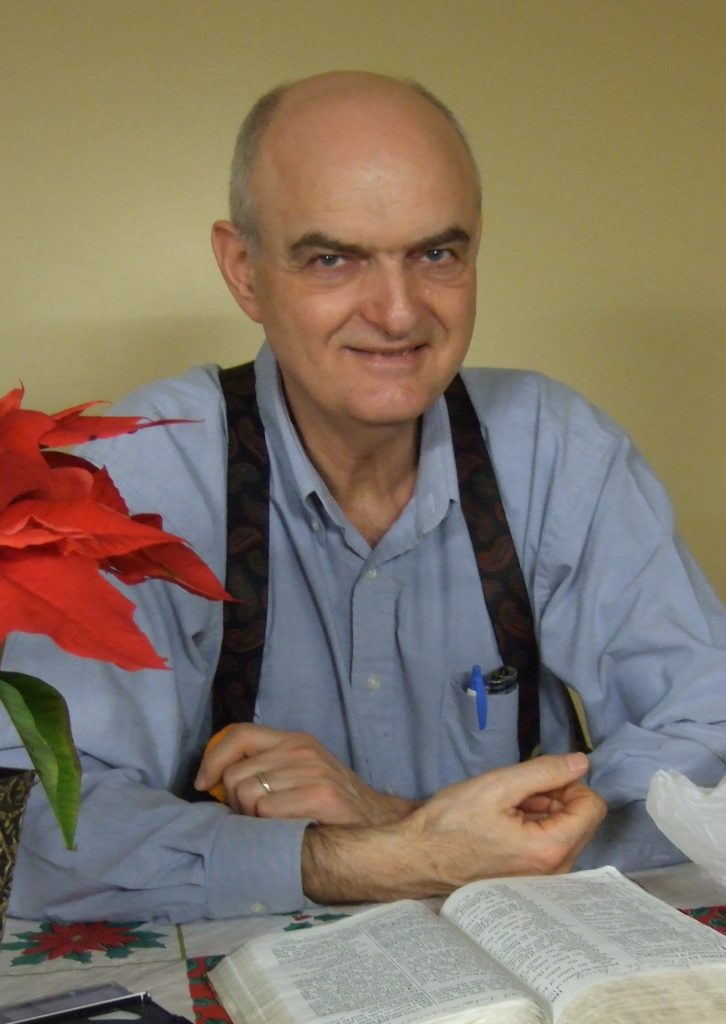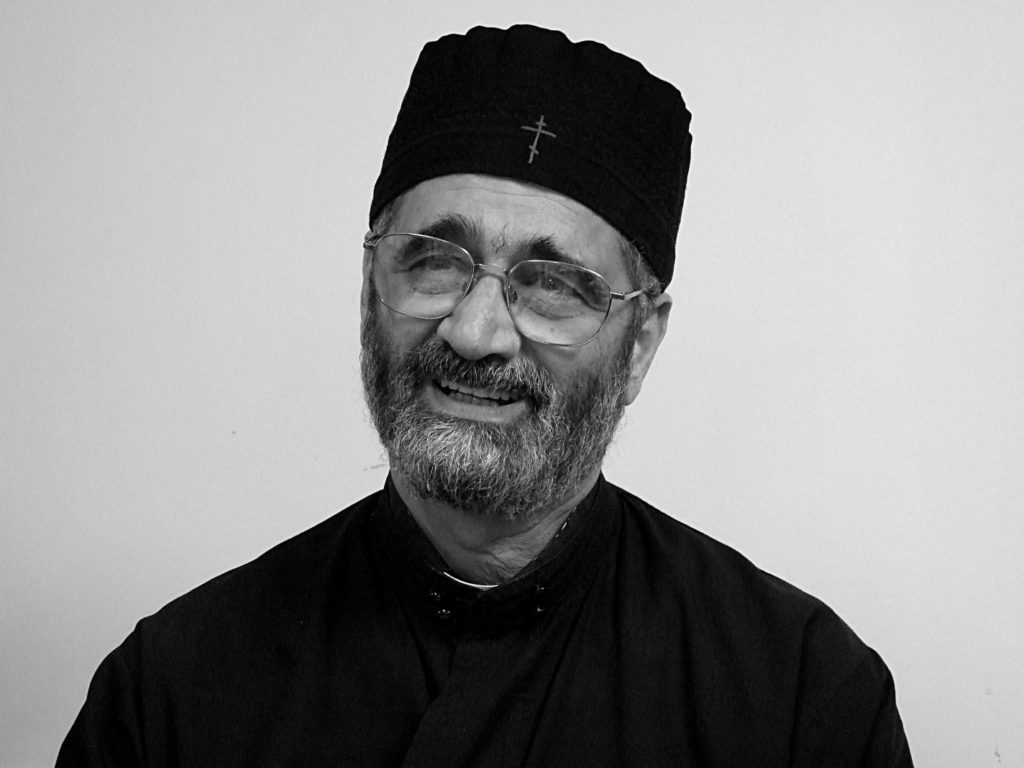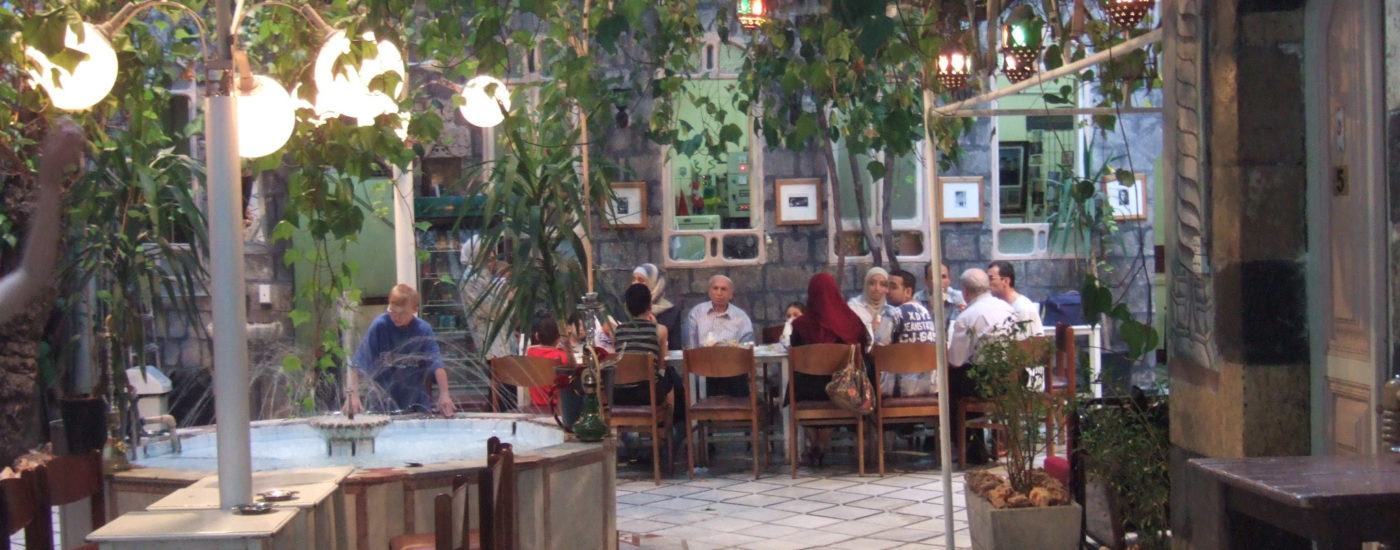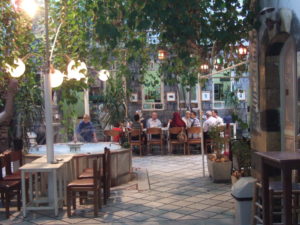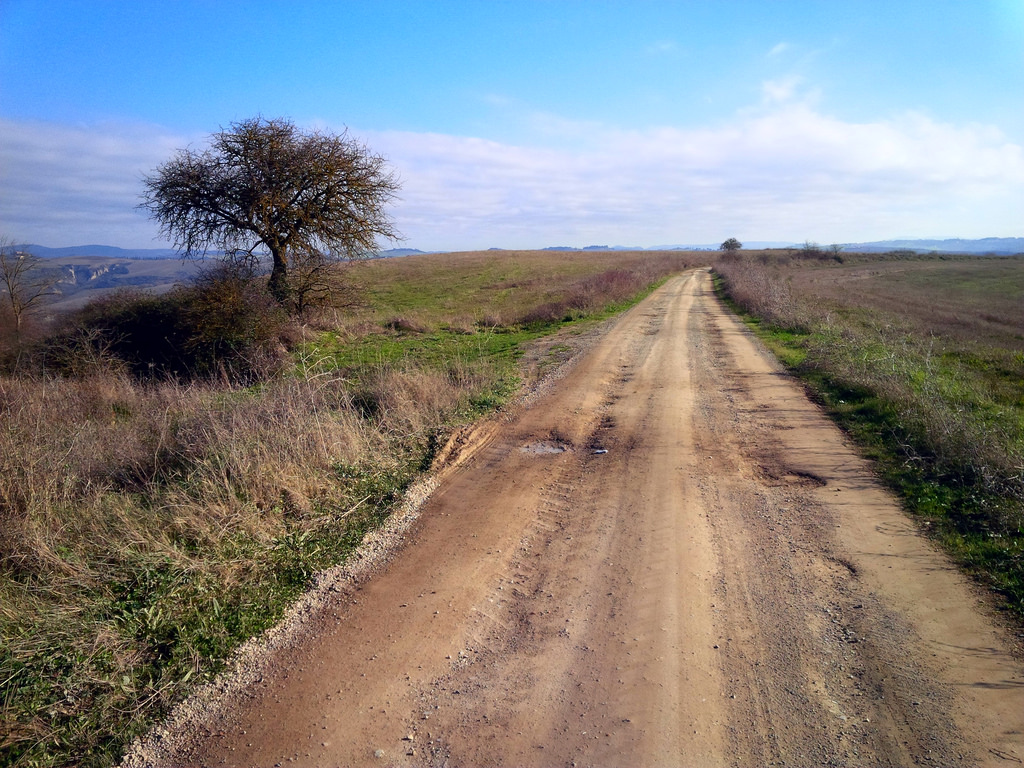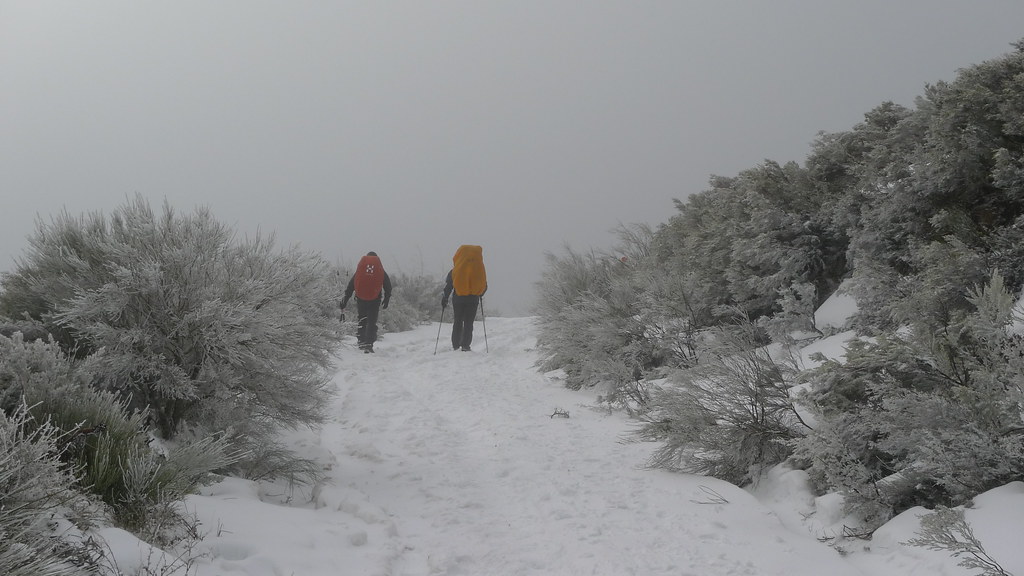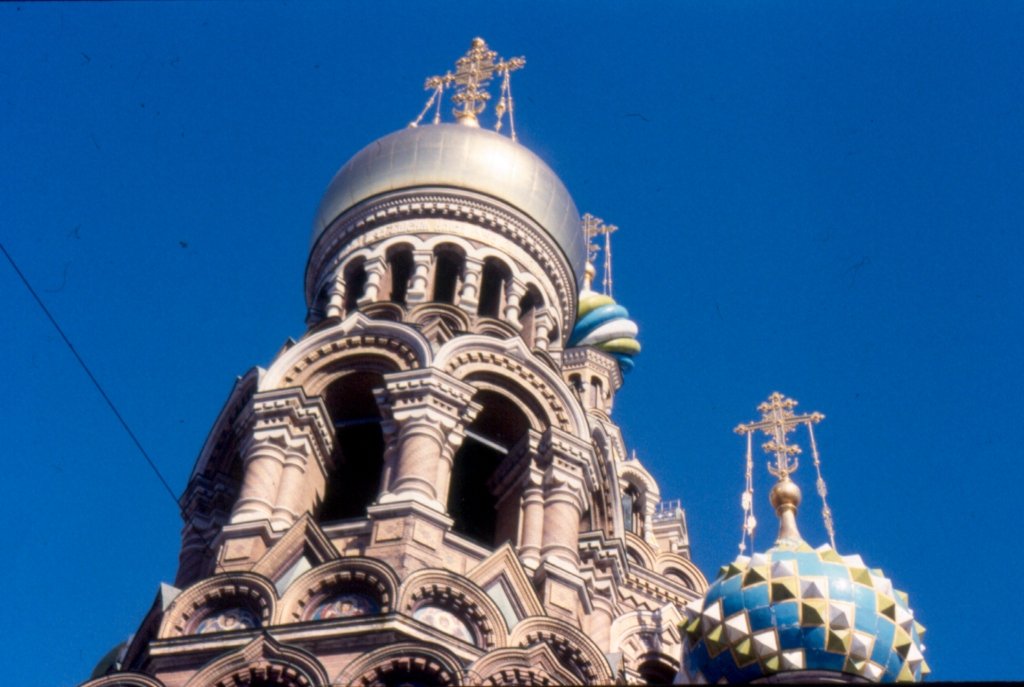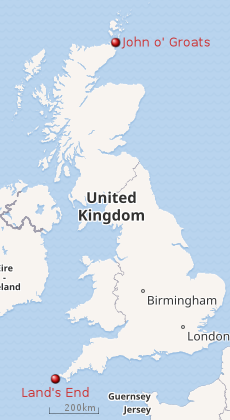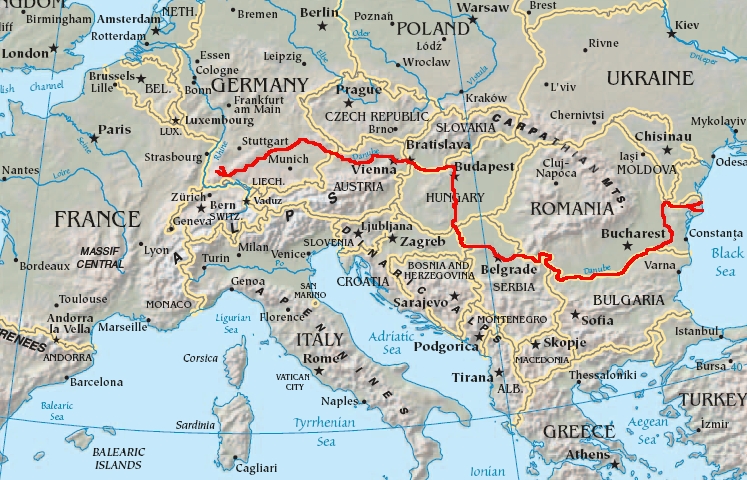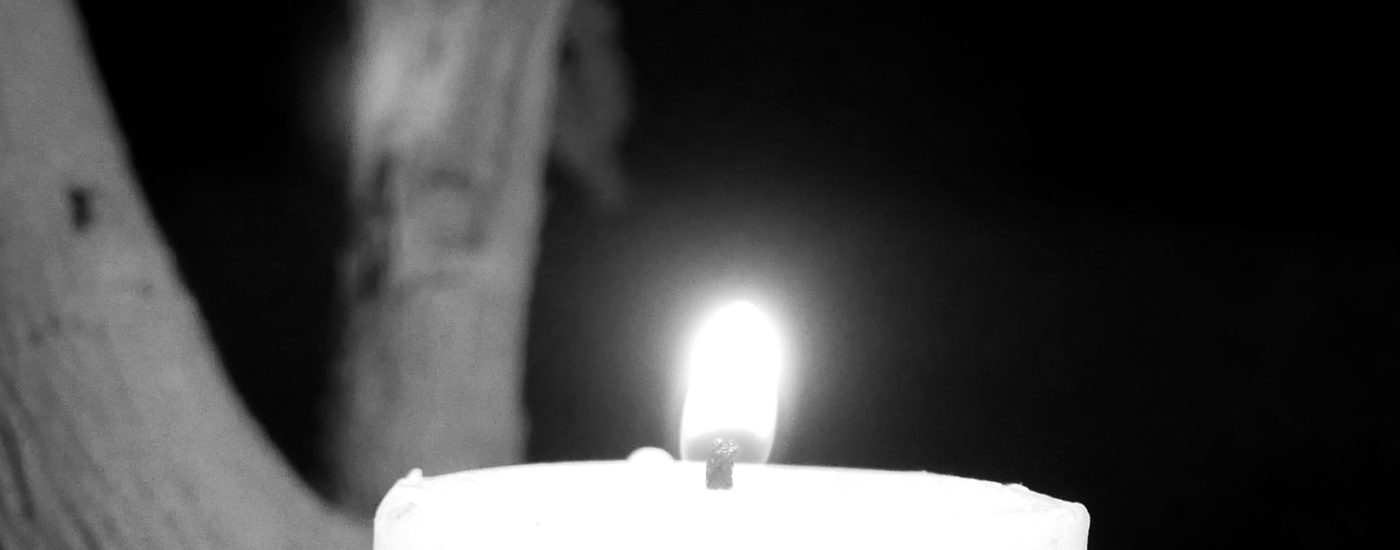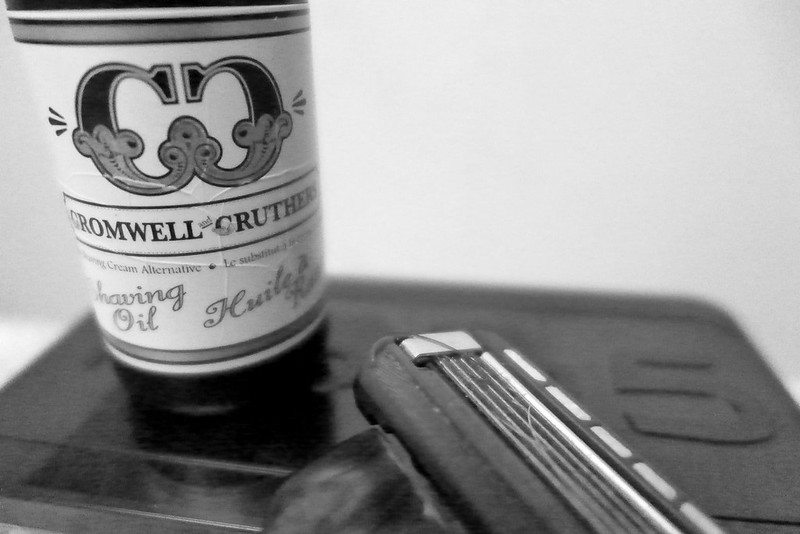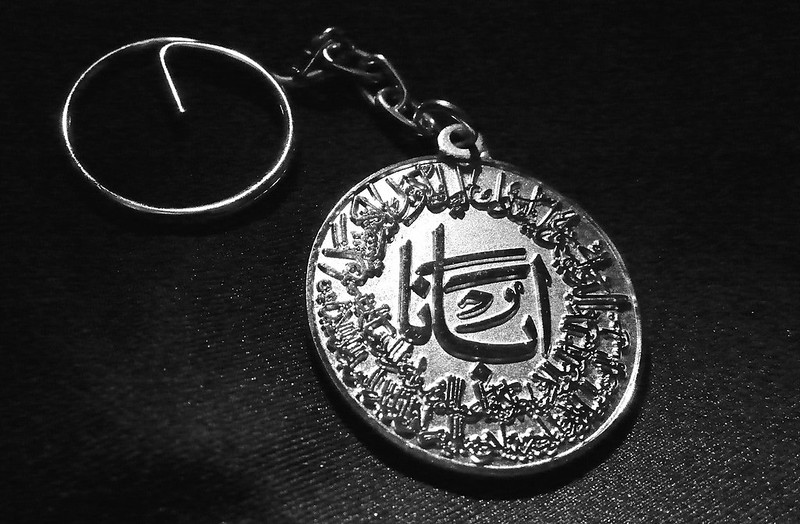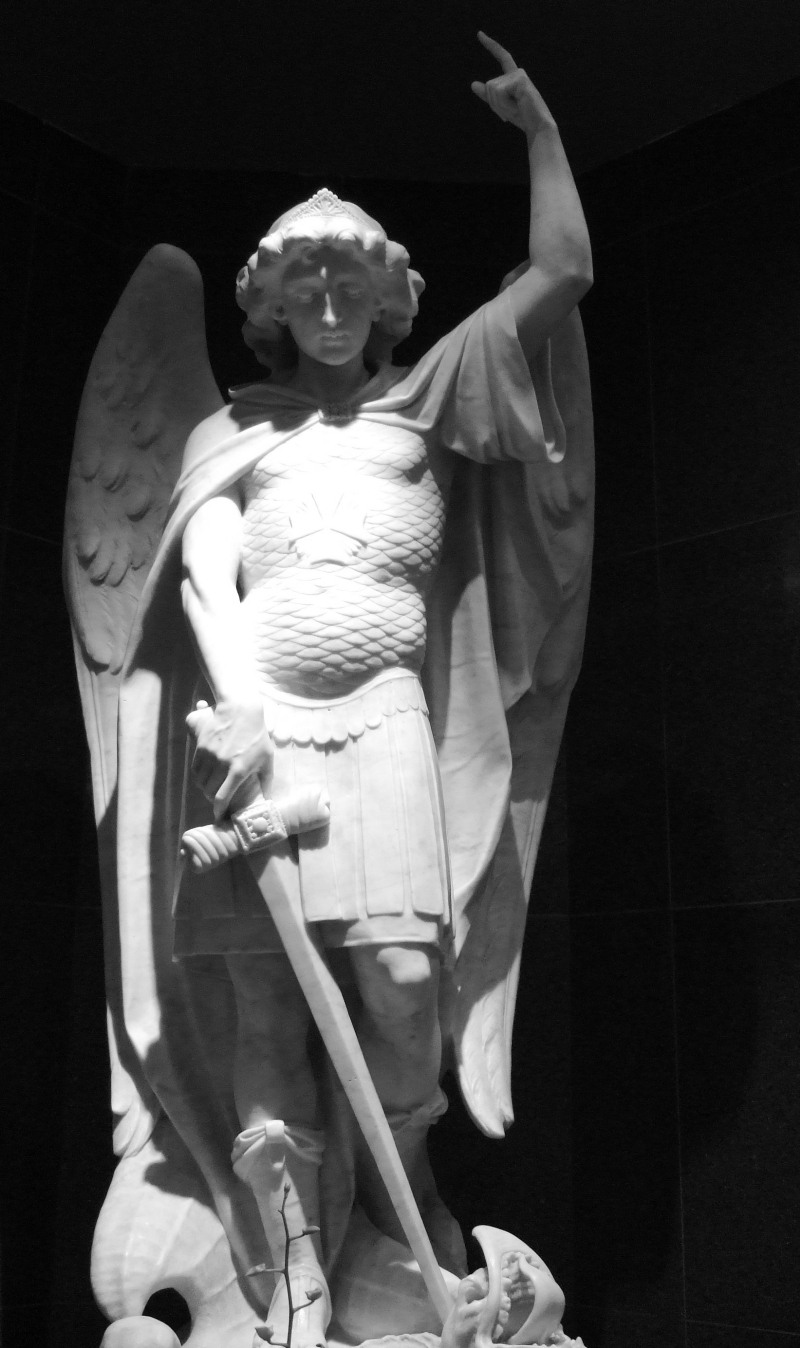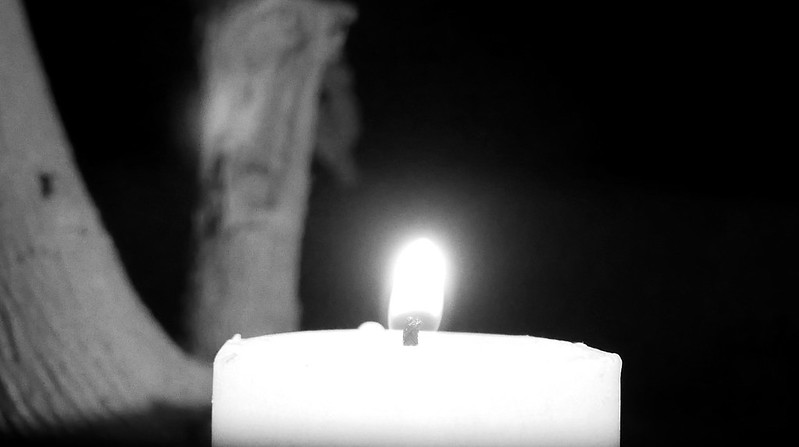One of the things I love about my job delivering bread is the amount of time I have to myself in the truck. Over the years, I have developed an extensive list of podcasts that I listen to. Some update on a daily basis, others weekly, and still others only a few times per year.
While I doubt that these will appeal to everyone, I’m also pretty sure that people in my social media circles will find something of interest here. The brief descriptions are taken from the respective podcast’s website or Wikipedia. (Please note that some podcasts contain strong language.)
99% Invisible
99% Invisible is about all the thought that goes into the things we don’t think about — the unnoticed architecture and design that shape our world.
Alice Isn’t Dead
A truck driver searches across America for the wife she had long assumed was dead. In the course of her search, she will encounter not-quite-human serial murderers, towns literally lost in time, and a conspiracy that goes way beyond one missing woman.
Common Sense with Dan Carlin
Dangerously thoughtful. Common Sense with Dan Carlin isn’t a show for everyone, and that’s what makes it so great. It’s a smart, deep, passionate, engaging, inquisitive and of course, politically Martian view of news and current events. There’s nothing else like it.
Dan Carlin’s Hardcore History
Hardcore History is Carlin’s forum for exploring topics throughout world history. The focus of each episode varies widely from show to show but they are generally centered on specific historical events and are discussed in a “theater of the mind” style. New episodes are released approximately every four to seven months.
Decode the News
Decode the News is a podcast that’s focused on breaking down the week’s major news stories on a critical level, and giving you cutting edge sociological tools to better help you critically consume the media. This is not a weekly digest. It is not a show where you will hear the same talking points from yet another perspective. Instead, this is a weekly analysis on the way the news shapes you with the goal of teaching you how to recognize what and why that is happening.
Glory to God
Thoughts and reflections on Orthodox theology and life.
Fr. Stephen Freeman is the priest at St. Anne Orthodox Church (OCA) in Oak Ridge, TN. His weblog Glory to God for all Things, has quickly become one of the most read Orthodox sites on the web, being translated frequently in Romanian, French, and Serbian, by enthusiastic readers.
History of Philosophy in India
In this series of episodes, co-authored with Jonardon Ganeri (Professor of Philosophy at NYU, Visiting Professor at King’s College London and Professorial Research Associate at SOAS – and author of numerous books and articles on Indian philosophy), Peter considers the rich philosophical tradition of India. The podcasts cover the first thousand years of the history of Indian philosophy, beginning with Vedic literature (including the Upanisads) and ending with the maturation of Buddhist and Jain thought. This timespan will be divided into three ages: the early period of the Vedas and classical Hindu epics, and the emergence of critique from the Buddhists and Jains; the Age of the Sutra, a period of increasing systematicity in which several schools of thought emerged from the brahminical tradition; and finally a look at the critiques of these schools from the Buddhist and Jain traditions.
History of Philosophy Without Any Gaps
Peter Adamson, Professor of Philosophy at the LMU in Munich and at King’s College London, takes listeners through the history of philosophy, “without any gaps.” The series looks at the ideas, lives and historical context of the major philosophers as well as the lesser-known figures of the tradition.
History on Fire
History on Fire is a podcast by author and university history professor Daniele Bolelli. Whether you like history or not, if you care about bravery, wisdom, passion, larger than life characters and some of the most emotionally intense moments in human experience, you have come to the right place. Bolelli shall be your guide in a journey to the place where history and epic collide.
Ideas with Paul Kennedy
Ideas is eclectic in form and content. We cover social issues, culture and the arts, geopolitics, history, biography, science and technology, and the humanities. Most of our programs are documentaries in which thoughts are gathered, contexts explored, and connections made.
In Our Time
In Our Time is a live BBC radio discussion series exploring the history of ideas, presented by Melvyn Bragg since 15 October 1998. Each programme covers a specific historical, philosophical, religious, cultural or scientific topic. Bragg hosts discussion of the week’s subject featuring what he has characterised as “three absolutely top-class academics” on the subject.
Intercepted with Jeremy Scahill
Intercepted with Jeremy Scahill is a weekly podcast hosted by investigative journalist Jeremy Scahill and produced by First Look Media. The podcast uses interviews, round table discussions, and journalistic narrative to present investigative reporting, analysis and commentary on topics such as war, national security, the media, the environment, criminal justice, government, and politics.
Politically Re-Active with W. Kamau Bell and Hari Kondabolu
Comedians and longtime friends W. Kamau Bell and Hari Kondabolu navigate the dumpster fire that is the US political landscape. Join Hari, Kamau and their guests every week as they discuss how to move forward, how to be an active part of the resistance, and how to stay joyful in the face of the unknown.
Q: The Podcast
Get ready to meet the artists you’re talking about, and the ones you’ll soon love. Whatever you’re into — be it music, TV, film, visual art, theatre, or comedy — q is there. Expect deep insight, and big surprises. Because on q, arts and entertainment get personal.
Quirks and Quarks
The show consists of several segments each week, most of which involve the host interviewing a scientist about a recent discovery or publication, combined with in-depth documentaries; however, from time to time the show does a special “Question Show” episode, during which the format consists of scientists answering questions submitted by listeners.
Revisionist History
Welcome to Revisionist History a new podcast from Malcolm Gladwell and Panoply Media. Each week for 10 weeks, Revisionist History will go back and reinterpret something from the past: an event, a person, an idea. Something overlooked. Something misunderstood.
“Because sometimes the past deserves a second chance.”
Revolutions
A weekly podcast series by Mike Duncan examining great political revolutions.
Roads From Emmaus
Exploring the Intersection Between Place, Communion, and Revelation:
Produced in Emmaus, Pennsylvania, this podcast features sermons and other talks about the exploration and engagement of Christian faith with the world. Jesus Christ both journeyed with His disciples on the road to the Biblical Emmaus and broke bread with them, thus revealing Himself as both our fellow traveler and the incarnate Word of God.
Spark
Spark is an ongoing conversation about our rapidly changing world. Along with you, host Nora Young explores how technology, innovation and design affects our lives.
TED Radio Hour
The TED Radio Hour is a journey through fascinating ideas: astonishing inventions, fresh approaches to old problems, new ways to think and create. Based on Talks given by riveting speakers on the world-renowned TED stage, each show is centered on a common theme – such as the source of happiness, crowd-sourcing innovation, power shifts, or inexplicable connections. The TED Radio Hour is hosted by Guy Raz, and is a co-production of NPR & TED.
Tell Me Something I Don’t Know
Tell Me Something I Don’t Know is live journalism wrapped in a game-show package and hosted by Stephen J. Dubner, co-author of the Freakonomics books and host of Freakonomics Radio. Stephen has always had a mission: to tell you the things you thought you knew but didn’t; and things you never thought you wanted to know, but do. Now, he has a new way of doing just that. TMSIDK is still journalism, still factual — but disguised in the most entertaining, unexpected, and occasionally ridiculous conversation you’re likely to hear.
Guest presenters come on stage before a live audience and try to wow Stephen and his co-host(s) with a fascinating fact, a historical wrinkle, a new line of research — anything, really, as long as it’s interesting, useful and true (or at least true-ish). There’s a real-time human fact-checker on hand to sort fact from fiction.
The Allusionist
Linguistic adventures with Helen Zaltzman.
The Areopagus
Historic Christianity Encounters Other Religious Traditions:
When the early apostles or our Lord encountered people who didn’t oppose them but believed differently when it came to faith, how were they engaged? We have one example in the book of Acts with the Apostle Paul’s encounter at The Areopagus or Mars Hill. This podcast is about the encounter of historic Christianity with other religious traditions. We’ll have many topics and frequent guests and we promise informative, irenic discussions without compromising Truth.
The British History Podcast
The British History Podcast is a chronological telling of the story of Britain. I started in the Ice Age, and I’ve been steadily moving forward ever since. The focus of this podcast is upon the human drama that is played out in history. Rather than providing a dry recount of dates and names, I am doing my best to provide a three dimensional image of what these people, places, and events were like. The people I’m speaking about were real flesh and blood individuals with dreams, fears, and flaws. And where the information is available, I intend to highlight those aspects for you.
The History of Byzantium
The History of Byzantium is a podcast dedicated to the story of the Roman Empire from the collapse of the West in 476 to the fall of Constantinople in 1453. Byzantine history is fascinating, world changing and largely forgotten. Listen and discover who they were.
The show was created to continue the narrative established by Mike Duncan’s wonderful podcast The History of Rome. I have tried to remain faithful to Mike’s structure of half hour instalments told from a state-centric perspective. My innovation is to pause the narrative at the end of each century to take time to cover wider issues to do with Byzantium. I’ve also taken time to produce feature length episodes on the most dramatic incidents.
The History of Rome
A weekly podcast tracing the history of the Roman Empire, beginning with Aeneas’s arrival in Italy and ending with the exile of Romulus Augustulus, last Emperor of the Western Roman Empire. Now complete!
The Orbiting Human Circus (of the Air)
Atop the Eiffel Tower, a lonely janitor stumbles into a series of alternately surreal and comic adventures as he becomes part of a mystery: what is the secret behind the wildly popular, bizarrely impossible live radio variety show being broadcast from the tower’s top?
The Weird History Podcast
Weird History is a podcast focusing on out-of-the-way, obscure, weird, and forgotten corners of history from Joe Streckert, an independent journalist in Portland, Oregon. New episodes appear on Monday.
The World in Words
The World in Words is a podcast about languages and the people who speak them. What happens to the brain on bilingualism? Does it matter that so many languages are dying out? Should we fear the rise of global English? Is the United States losing its linguistic cohesion? Why are Chinese tech words so inventive? Why does Icelandic have so many cool swearwords? Patrick Cox and Nina Porzucki bring you stories from the world’s linguistic frontlines.
Through a Monk’s Eyes
Looking at the World from the Celtic Shores of Scotland—and Elsewhere:
Have you ever wondered what the world looks like through a monk’s eyes? Priest-monk Seraphim shares his stories of the places he visits and the people he meets as he travels the world to found the first Orthodox monastery in the Celtic Isles of Scotland in a thousand years. The Monastery is dedicated to All Celtic Saints, and you may support its founding at MullMonastery.com.
Under the Influence
As the marketing world shifts from a century of overt one-way messaging to a new-world order of two-way dialogue, we leave the age of persuasion and enter the era of influence.
The first 50 years of modern advertising was based on hard-sell. The next 50 years was persuasion through creativity and media tonnage. But as advertising squeezed into the 21 century, it was forced to shed its elbowing ways and become a delicate dialogue. The goal is no longer to triumph by weight, but to win by influence.
Welcome to Under the Influence. An exploration of that critical shift.
Welcome to Night Vale
Welcome to Night Vale is a twice-monthly podcast in the style of community updates for the small desert town of Night Vale, featuring local weather, news, announcements from the Sheriff’s Secret Police, mysterious lights in the night sky, dark hooded figures with unknowable powers, and cultural events.
Turn on your radio and hide.
What Trump Can Teach Us About Con Law
Elizabeth Joh is an Intro to Constitutional Law professor and most of the time this is a pretty straightforward job. But with Trump in office, everything has changed. Hosted by acclaimed podcaster Roman Mars (99% Invisible, co-founder Radiotopia), this show is a weekly, fun, casual Con Law 101 class that uses the tumultuous and erratic activities of the executive branch under Trump to teach us all about the US Constitution.
Within the Wires
The hit audio drama Within the Wires returns with a new story told through found audio from an alternate universe. Season two, “Museum Audio Tours,” tells its story in the guise of ten audio museum guides. Over the course of a decade of worldwide exhibitions, these walkthroughs unravel the complex story of a mysterious disappearance of an artist’s mentor.
Want to listen from the beginning? Season One, “Relaxation Cassettes,” takes the form of an audio course on full body relaxation issued by The Institute to you, (the listener) a nameless medical inmate. Who is this narrator? Is she relaying something more than just relaxation techniques, and is she to be trusted? And are there subliminal messages hidden within the music? As listeners move through the relaxation curriculum a deeper and more personal story unravels.
(Still reading? Wow, you must have almost as much time on your hands as I do!)
